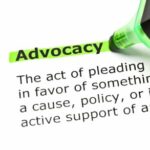Category Archives: Criminal

The Role Of The Jury In Criminal Sentencing
The Sixth Amendment to the United States Constitution guarantees every person charged with a crime the right to a jury trial. The U.S. Supreme Court has further clarified that this right extends to the determination of “[a]ny fact that, by law, increases the penalty for a crime.” In other words, if prosecutors need to… Read More »

Miami Judge Tosses Gun Found During Illegal Search Of Suspect
You might think that courts will always believe the testimony of the police over that of a criminal defendant. But that is not true. Take this recent case from Miami, United States v. Howard. The defendant in this case was talking with some friends on the sidewalk outside of a building. Miami police detectives… Read More »

When Can the State Civilly Commit a “Sexually Violent Predator”?
Florida law makes it possible for prosecutors to seek civil commitment of a person believed to be a “sexually violent predator.” Even if such a person has already served any applicable criminal sentence, they can still be committed if prosecutors can show they have some personality disorder or mental health issue that makes them… Read More »

Can I “Reassert” My Right to Remain Silent During an Interrogation
When you are arrested or interrogated by the police as a criminal suspect, you have the right to remain silent. This right ensures that you are not compelled to make incriminating statements that could be used against you at trial. Even if you initially waive this right and talk to the police, you are… Read More »

What Happens When a Juror Lies About Their Background? Can You Get a New Trial?
The right to a jury trial is an essential legal protection for anyone charged with a crime in Florida. It has been long understood that jurors should be impartial and “indifferent” to the case at trial. To put it in simpler terms, a juror should not harbor or exhibit any personal bias against the… Read More »

Can Police Use a Pre-Recorded Interview with a Victim as Evidence Against You at Trial?
The Sixth Amendment to the U.S. Constitution guarantees every criminal defendant the right to “confront” the witnesses against them. In plain terms, you have the right to cross-examine in court any witness who offers testimony on behalf of the prosecution. This is why, as a general rule, the prosecution cannot introduce hearsay that has… Read More »

What Is a Judgment of Acquittal?
In any criminal case, the prosecution must prove all elements of the alleged offense beyond a reasonable doubt. If the evidence is insufficient to prove any element, the defendant has the right to ask the court for a judgment of acquittal (JOA). Basically, this means the judge can find that no rational jury could… Read More »

How Does the State Prove the Value of Stolen Property in a Theft Case?
If you are familiar at all with criminal law, you probably have heard the phrase “beyond a reasonable doubt.” This is the legal burden of proof that a prosecutor must meet to secure a defendant’s conviction. This standard applies to every element of alleged crime. And depending on the nature of the charge, there… Read More »

When Can Prosecutors Use “Pattern Evidence” to Prove You Committed a Crime?
If you are on trial for allegedly committing a crime, the prosecution generally cannot introduce evidence regarding any other crimes you may have committed in the past. This is considered “character evidence” and unless it has some relevance to the alleged crime, it is inadmissible. Essentially, the prosecution cannot use “prior bad acts” to… Read More »

Can You Appeal a Criminal Conviction Even if You Pleaded Guilty?
If you are convicted of a crime following a trial, you have the right to appeal. An appeal is basically a request to have a higher court review what took place at the trial and decide if there were any legal errors made that violated your rights. An appeal is not the same thing… Read More »

When Is Evidence of Other Possible Crimes Admissible in a Florida Criminal Trial?
A criminal trial is about a specific act allegedly committed by the defendant. It is not supposed to be a forum to put the defendant’s personal character on trial. For that reason, Florida law generally prohibits prosecutors from introducing “character evidence,” such as information regarding other crimes the defendant may have committed in the… Read More »

What Is Considered a “Speedy Trial” in Florida?
The Constitution guarantees all criminal defendants the right to a “speedy trial.” But what does “speedy” actually mean? That largely depends on where you are tried for a given crime. For example, when a defendant is tried in federal court, Congress has said a trial must begin within 70 days of the defendant’s indictment… Read More »

How Florida Law Continues to Punish Sex Offenders After They Complete Their Criminal Sentences
Sex crimes are treated differently than other types of offenses. For instance, you probably know that many people convicted of such crimes are legally required to register as “sex offenders” even after completing their prison sentences. And in some cases, the state may seek the ongoing “civil commitment” of an offender who is judged… Read More »

What You Need to Know About Florida’s Kidnapping Laws
In a criminal trial, the prosecution will often try and charge multiple offenses arising from the same action. For example, if someone is accused of robbing a store, but they also allegedly took hostages during the robbery, they could be charged with kidnapping as well. Indeed, Florida law broadly defines kidnapping to include “confining”… Read More »

How Do Florida Courts Assess the Reliability of Scientific Evidence?
“Trust the science” is a phrase we hear a lot these days. But when it comes to evidence presented at a criminal trial, a court cannot simply take the prosecution’s scientific evidence at face value. Instead, the court must decide if scientific evidence–and the methods by which it was gathered–is sufficiently reliable and accurate… Read More »

Is It Possible to Commit Both Battery and Aggravated Battery at the Same Time?
In Florida, battery is the crime of intentionally touching or striking another person against their will, or intentionally causing bodily harm to another person. A first offense for battery is considered a misdemeanor. However, there is a separate felony charge for aggravated battery. This involves a battery that results in “great bodily harm, permanent… Read More »

What Is the “Good Faith” Exception to the Fourth Amendment’s Search Warrant Requirement?
In any criminal case, the police must normally obtain a search warrant before searching a suspect’s property without their permission. We say “normally,” because over the years, the courts have carved out a number of exceptions to the Fourth Amendment’s warrant requirement. One of these is known as the “good faith” exception. The basic… Read More »

Understanding Florida’s “Prison Releasee Reoffender” Law
Florida’s criminal laws contain a number of traps designed to make it easier to impose harsher sentences on certain defendants. For example, if a person is released from prison after committing a crime, they can be charged as a “prison releasee reoffender” (PRR) if they commit a new “qualifying offense” within three years. To… Read More »

Can Prosecutors Strike Potential Jurors from a Criminal Trial Based on Race?
In Florida criminal trials, the prosecution and the defendant are each allowed a certain number of “peremptory challenges” during the process of jury selection. A peremptory challenge means you can strike a potential juror without having to give a reason. But there are some limits to this power. For example, in a 2019 decision,… Read More »

The Role of “Intent” in a Florida Criminal Case
“Intent” is often a key element of a criminal offense. Prosecutors must prove a defendant acted with intent when they committed an alleged offense. Depending on the facts of a given criminal case, this can mean either general or specific intent. Specific intent, as the name suggests, means the defendant acted with foresight to… Read More »

How the “Reasonably Foreseeable” Consequences of a Crime Can Affect a Defendant’s Sentence in Florida
When assessing a criminal sentence, a judge can, in certain cases, look beyond what the defendant actually did or knew about. The court may also be allowed to consider the consequences of a defendant’s criminal actions, even if the defendant had no direct knowledge of such effects. Instead, the law looks to what the… Read More »

Is a Guilty Plea Valid Even if the Prosecution Cannot Prove Its Case?
Most criminal cases never go before a jury. Instead, the prosecution and defense negotiate a plea agreement. In exchange for the defendant’s agreement to plead guilty to a criminal charge, the prosecution agrees to a sentencing recommendation that is typically far less than the maximum penalty available under the law. Of course, any plea… Read More »

When Can Police Initiate a “Stop and Frisk” Detention?
“Stop and frisk” detentions remain a controversial law enforcement practice in Florida. Normally, a police officer must have a warrant before placing a person under arrest or searching their person. But the courts have long permitted the police to conduct what they call “investigatory detentions.” Basically, if an officer has a “reasonable suspicion” that… Read More »

How the “Double Jeopardy” Rule Works in Florida Criminal Cases
One of the oldest principles of American criminal law is the prohibition against double jeopardy. Under our Constitution, no person can be “subject for the same offense to be twice put in jeopardy of life or limb.” Among other things, this means the government cannot retry you for the same crime if you have… Read More »

Yes, Not Guilty by Reason of Insanity Is Still a Possible Defense in Florida
If you are one of the 25 percent of Americans who have received a diagnosis of mental illness, you know how harmful outdated stereotypes about mental illness can be. Some of the most memorable performances in cinema misrepresent people with mental illness as violent and willing to kill either on impulse or in cold… Read More »



















